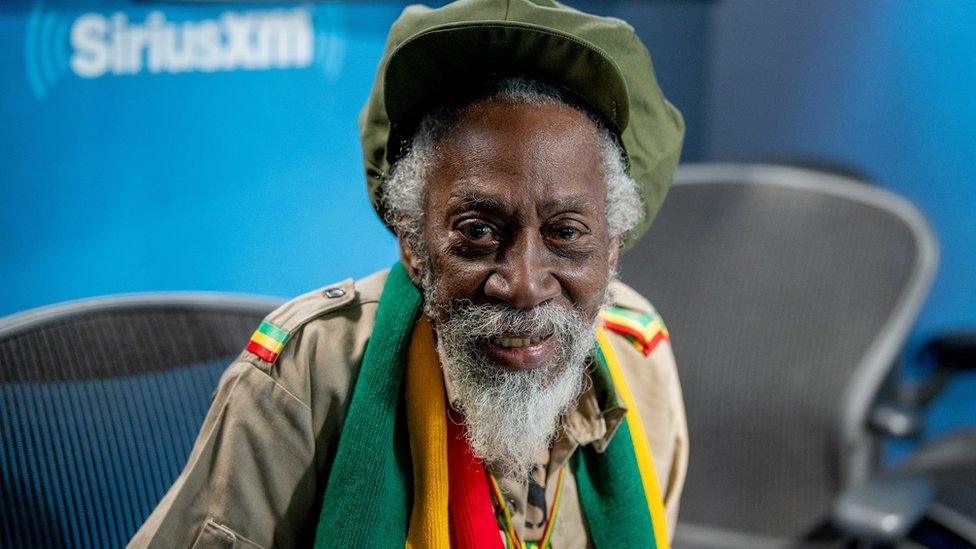Bob Marley: 40th anniversary of the music pioneer's death
- Published
It is 40 years since legendary reggae singer Bob Marley died of cancer in Miami, aged 36, on 11 May 1981.
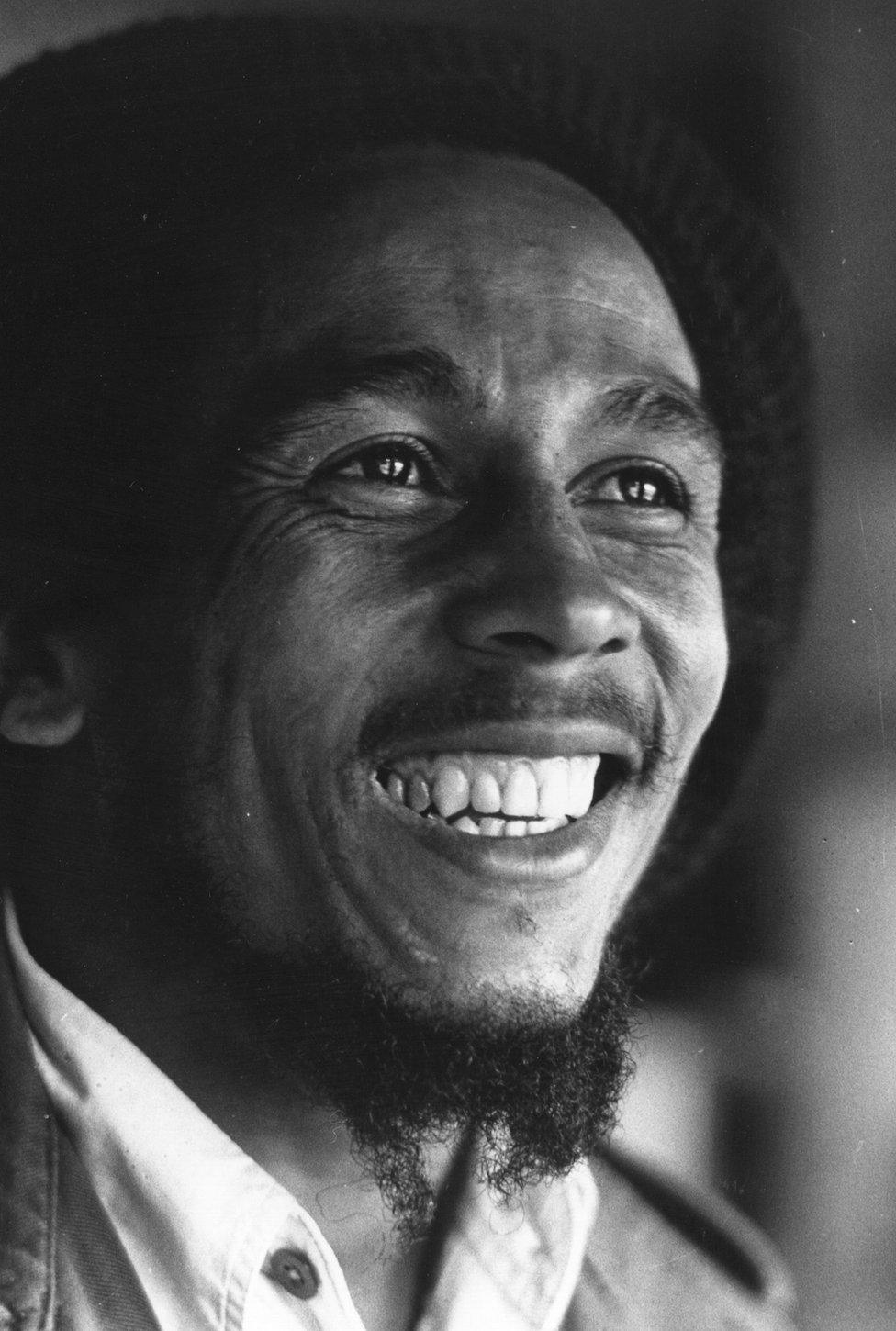
Bob Marley seen in London in 1977
The musician is one of the most celebrated and recognised artists in music history, with hits including No Woman No Cry, One Love, and Redemption Song.
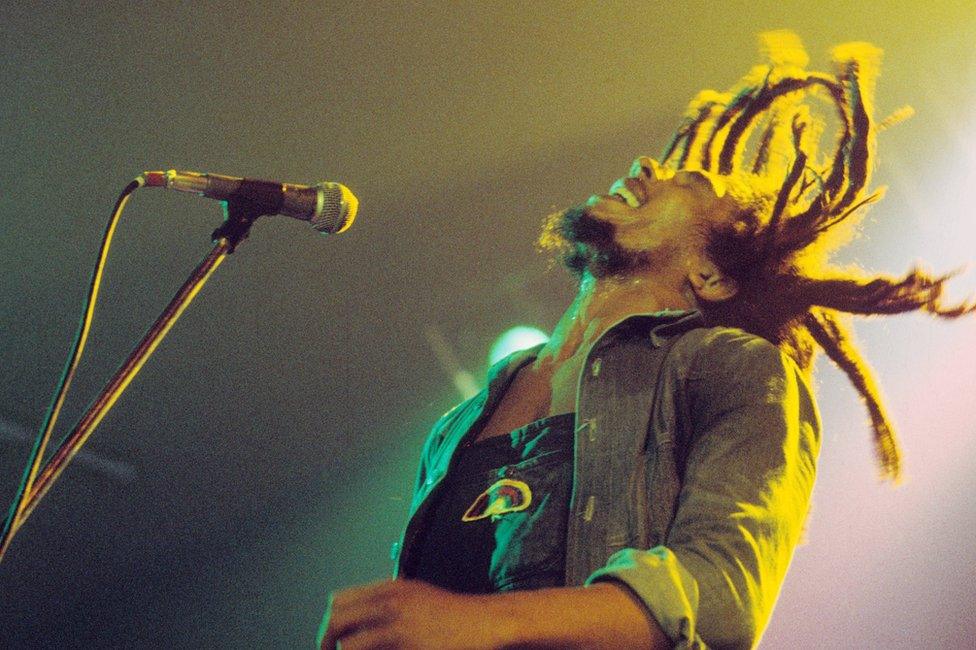
Bob Marley performs at Houtrust Hallen in The Hague, Netherlands, in 1977 (above and below)
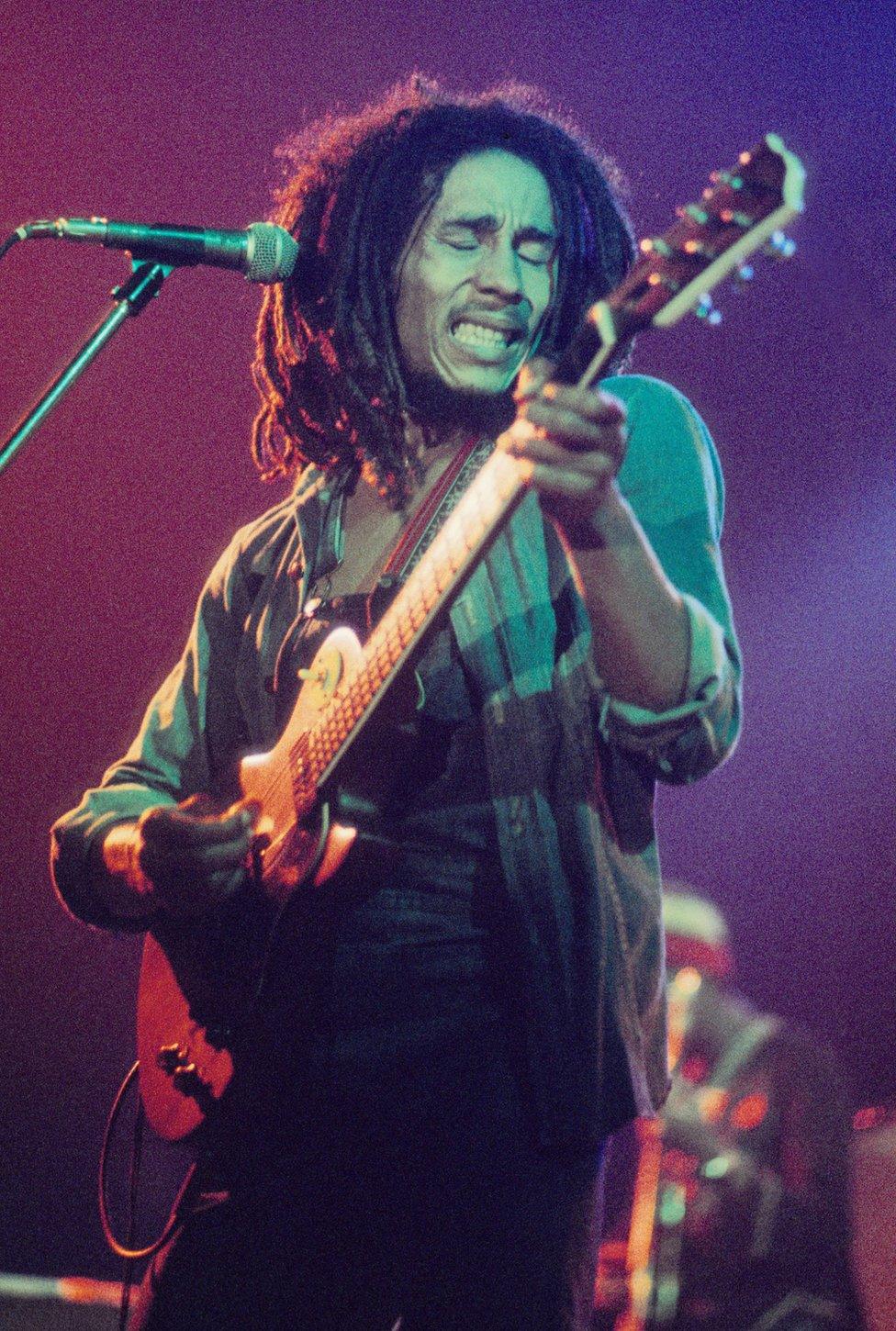
His hit Buffalo Soldier was the singer's biggest in the UK, reaching number four in May 1983.
The 1977 album Exodus was named Album of the Century by Time Magazine.
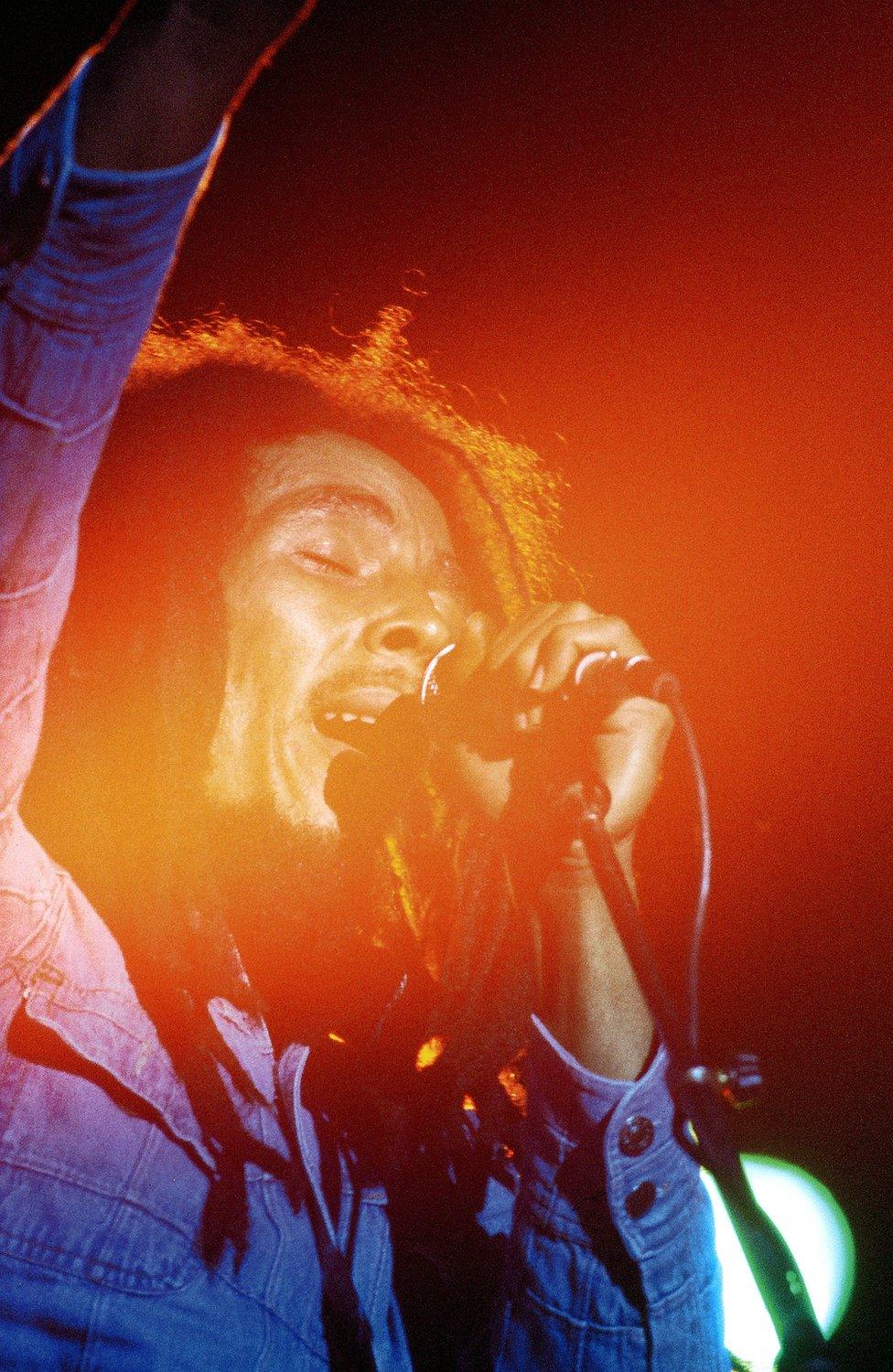
Bob Marley performing in the US in 1979
Marley was born in 1945 to a white middle class father and a black mother, in Jamaica.
His childhood was spent in poverty and he had little contact with his father, a naval officer who worked for the British government.
He left home at 14 years old to pursue a music career in Kingston.
In 1972, Marley arrived in Britain with his band The Wailers to tour with Johnny Nash in the hope of launching his international career.
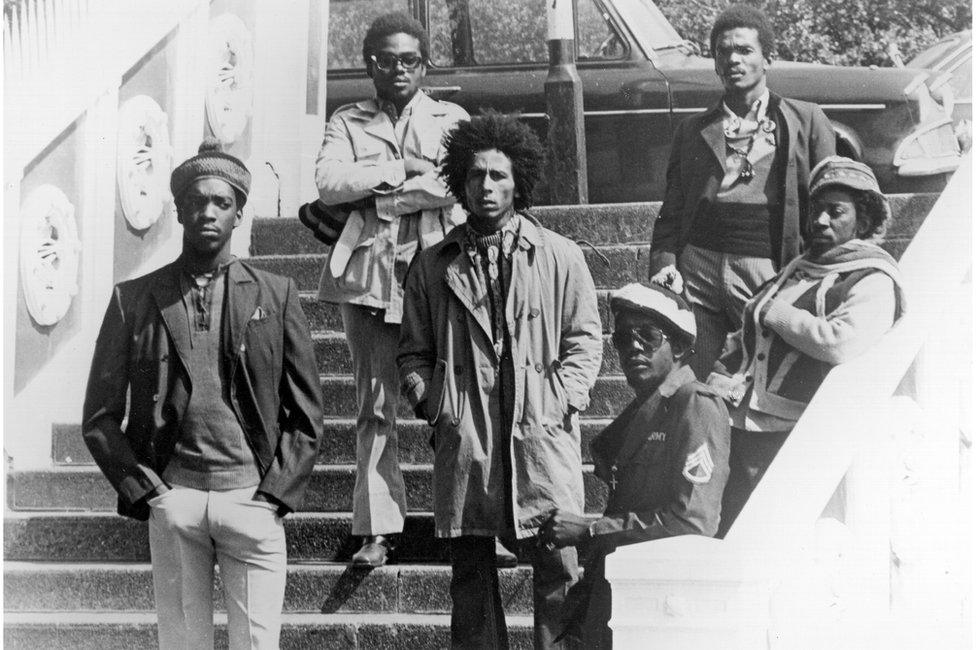
The Wailers (Earl Lindo, Aston Barrett, Bob Marley, Peter Tosh, Carlton Barrett and Bunny Wailer) pose for a portrait in 1973 in London
The following year, The Wailers released their album Catch a Fire and made their television debut on the BBC.
The appearance made a big impact and gave them a wider audience outside of their traditional fan base.
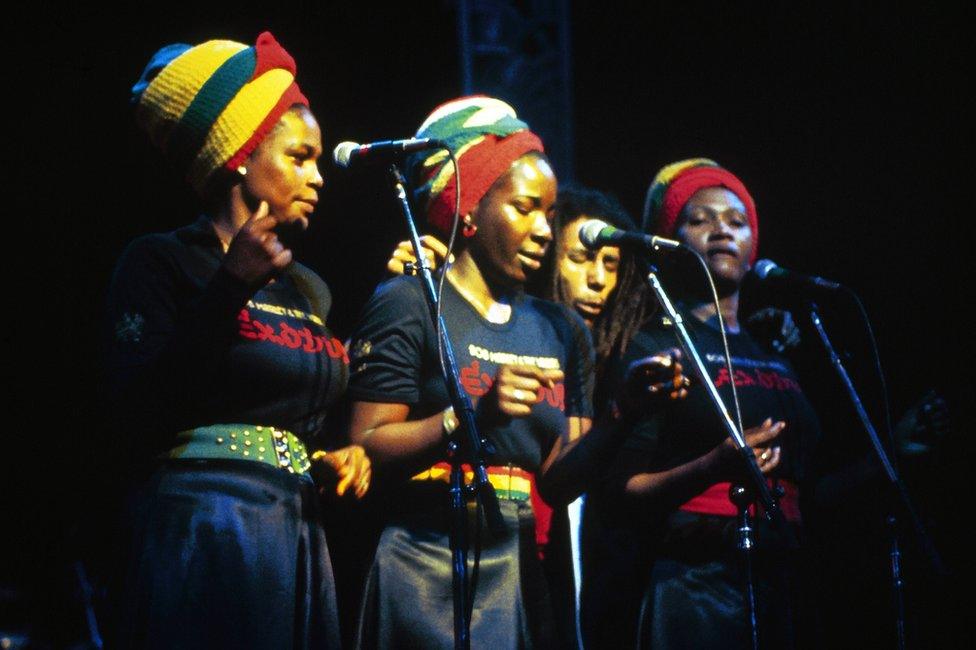
Bob Marley and the I-Threes (Judy Mowatt, Rita Marley and Marcia Griffiths) perform together at the Rainbow Theatre in London in 1977
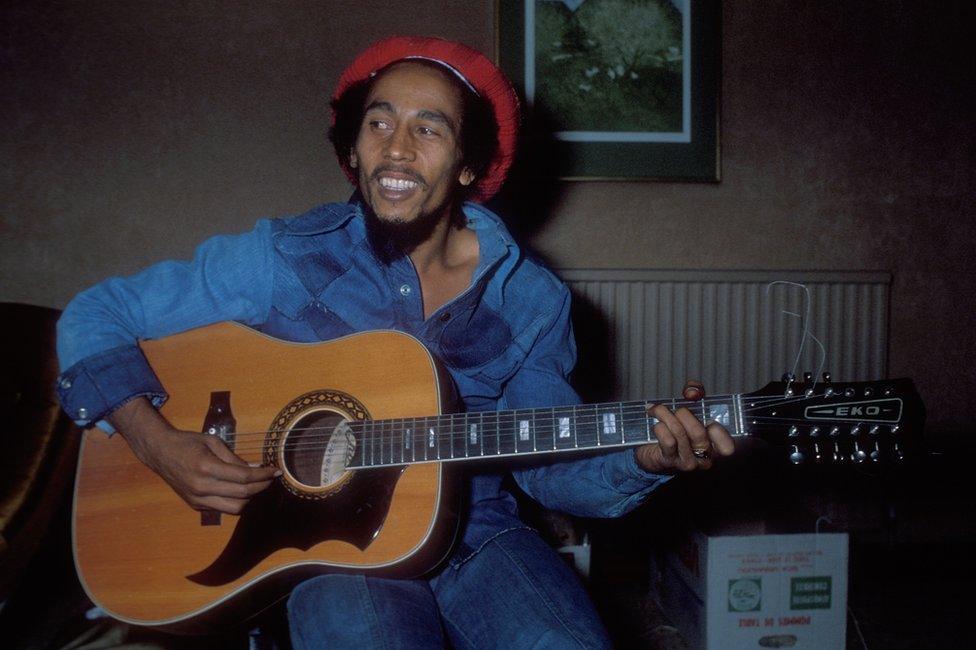
Bob Marley plays at a hotel in London in 1978
After another tour in 1975, a recording of No Woman No Cry live at The Lyceum, London, was released as a single and gave Marley his first UK hit.
The singer entered the musical mainstream and became a household name.
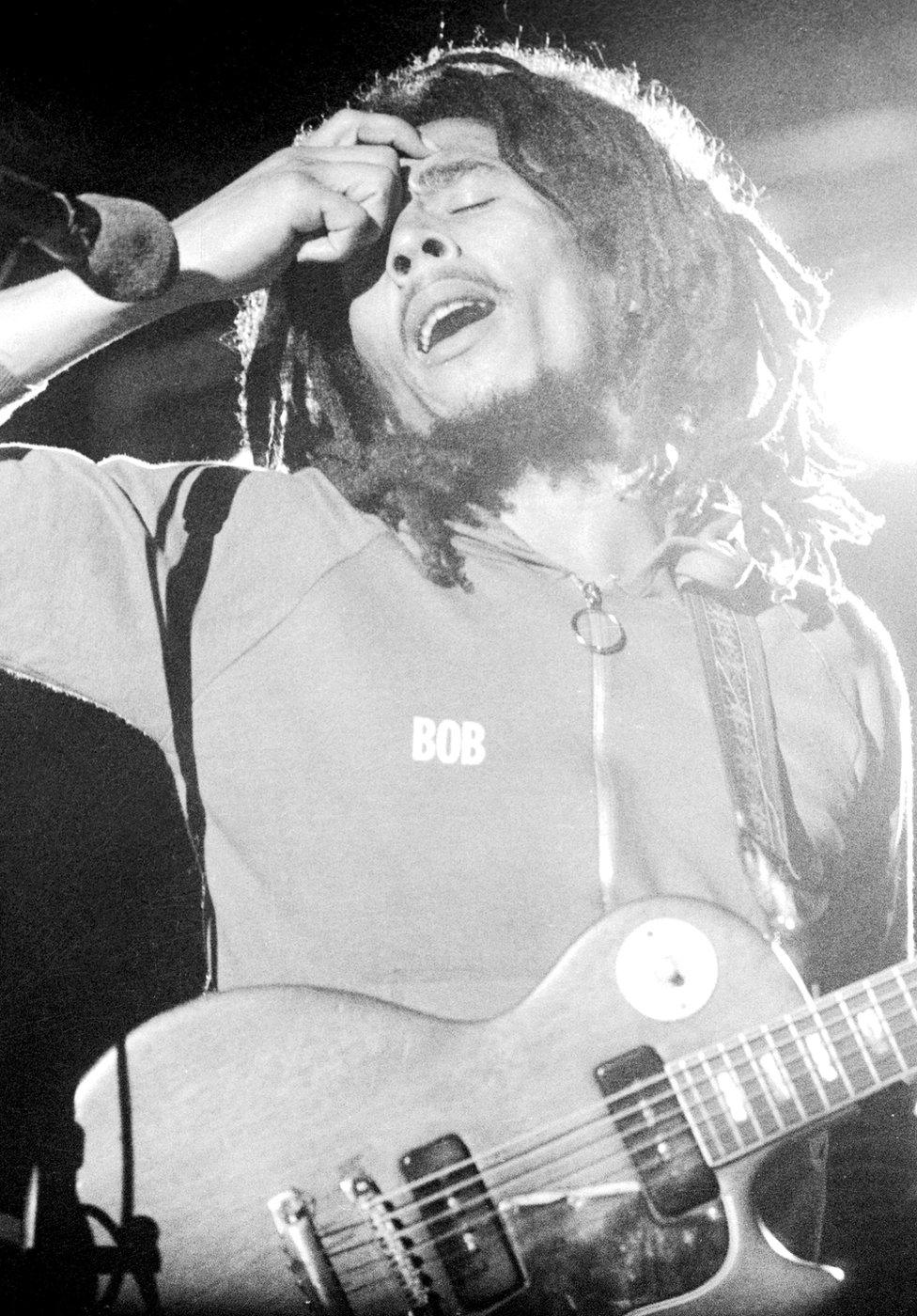
Bob Marley performs at the West Coast Rock Show at Ninian Park in Cardiff, in 1976 (above and below)
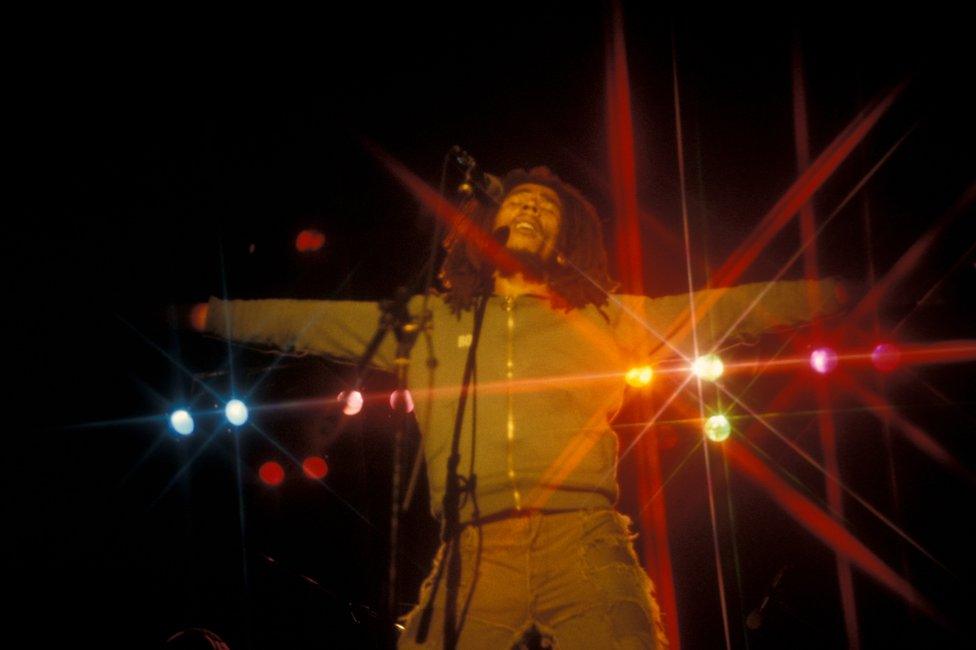
Marley was known for his Rastafarian faith, along with his wife, Rita, with the religion reflected in his music.
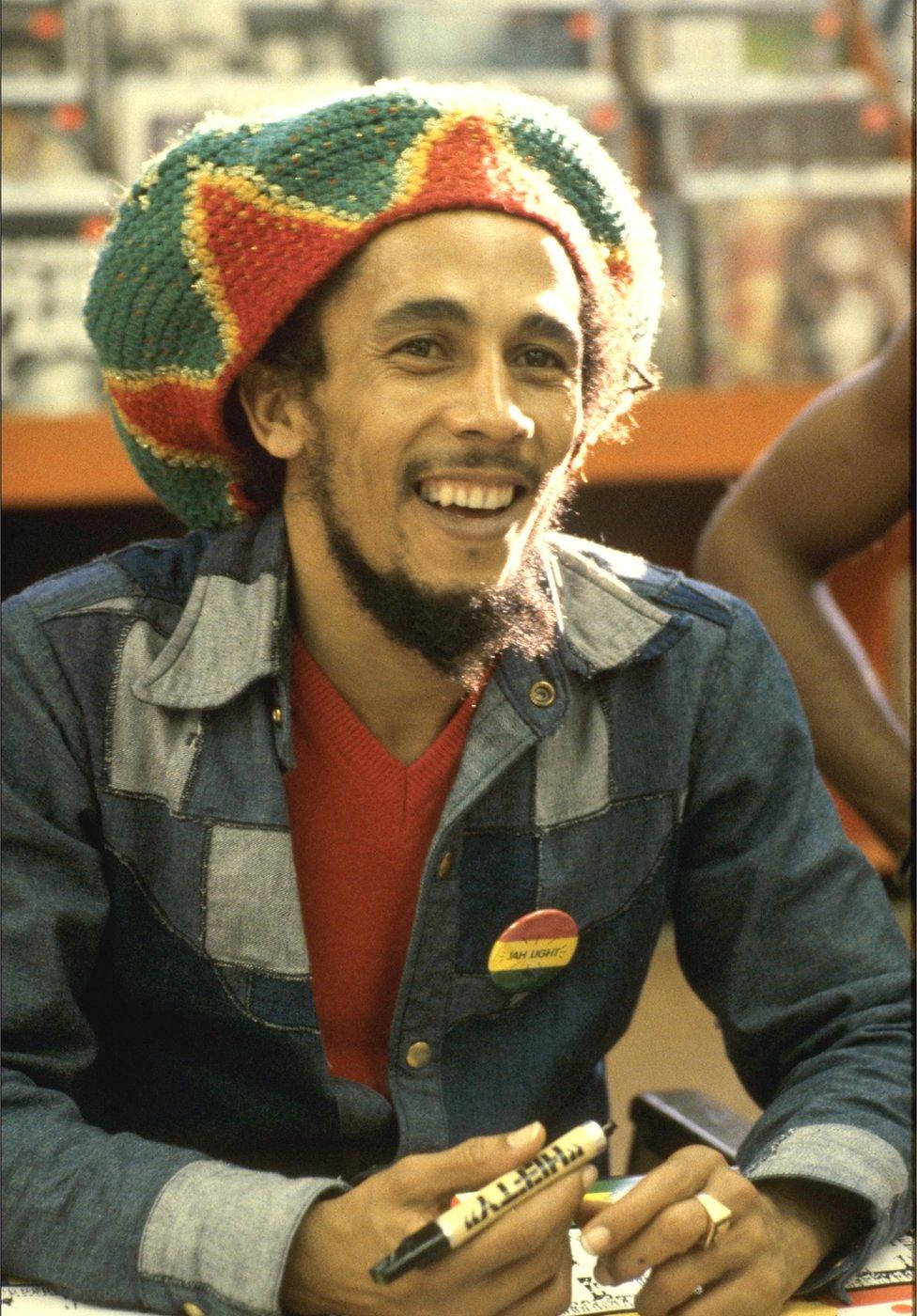
Bob Marley seen in 1979 in Hollywood Tower Records, California, US
The singer was also passionate about football and known for having a kickabout in between studio sessions or before he went on stage.
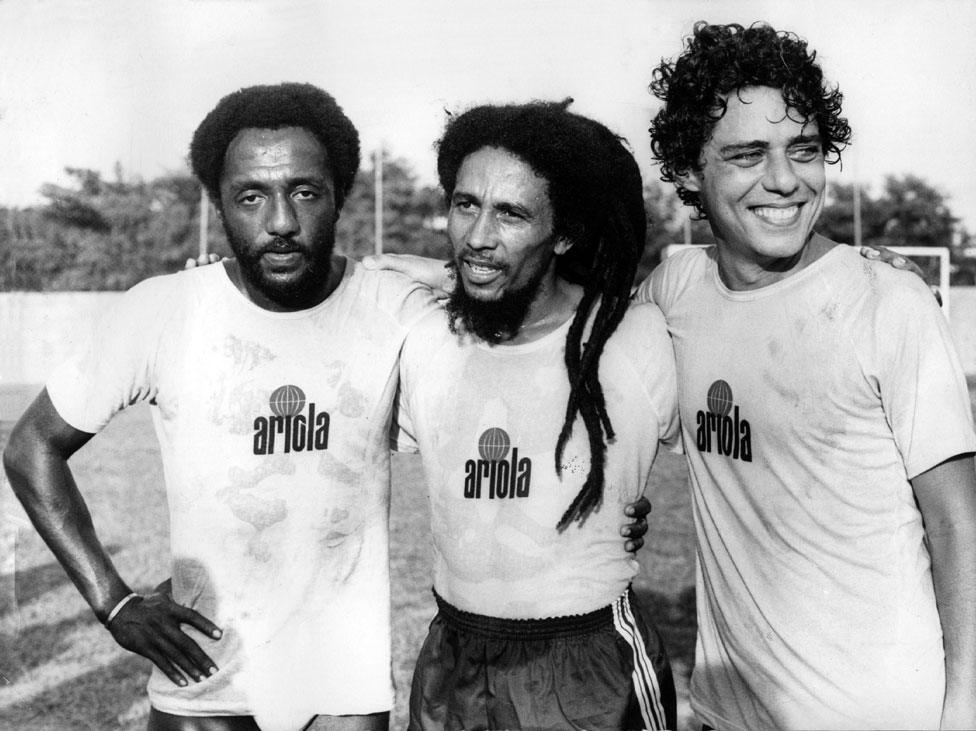
Bob Marley (centre) with football player Paolo Cesar Caju (left) and singer-songwriter Chico Buarque (right) on a football field in Rio de Janeiro, Brazil, in 1980
"I love music before I love football," he said in an interview in 1980.
"Playing football and singing is dangerous because the football gets very violent. I sing about peace, love and all of that stuff, and something might happen y'know.
"If a man tackle you hard it bring feelings of war."
Marley's last live performance in the UK was on 13 July 1980 at New Bingley Hall, Stafford.
Marley died the following year as a result of acral lentiginous melanoma, which he had been diagnosed with in 1977. He was buried in his Jamaican birthplace of the village Nine Mile.
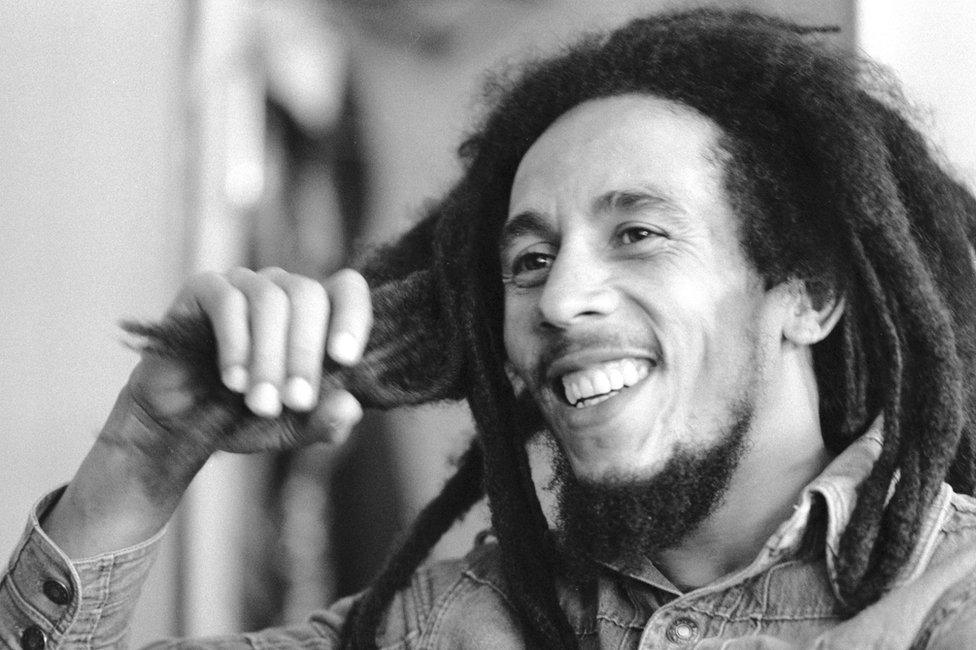
Bob Marley seen in 1978
All pictures are subject to copyright.
Related topics
- Published1 October 2019
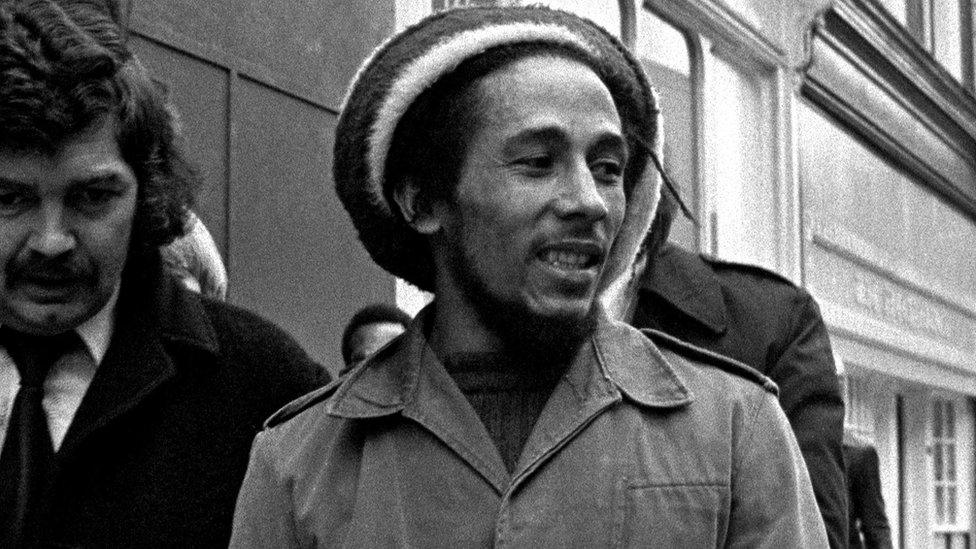
- Published4 December 2016
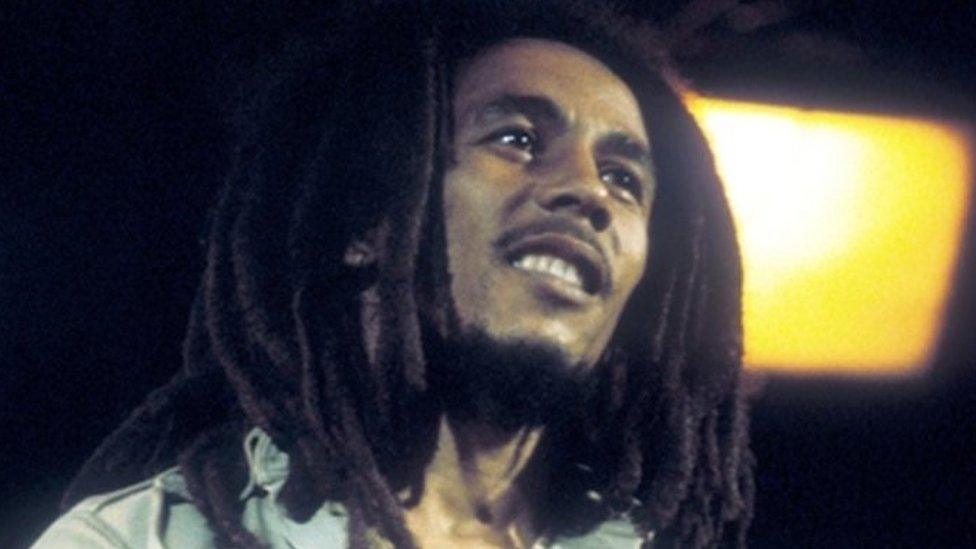
- Published2 March 2021
